‘There’s No Happy Ending’: CIA Chief of Station Assesses Crumbling Afghan Security
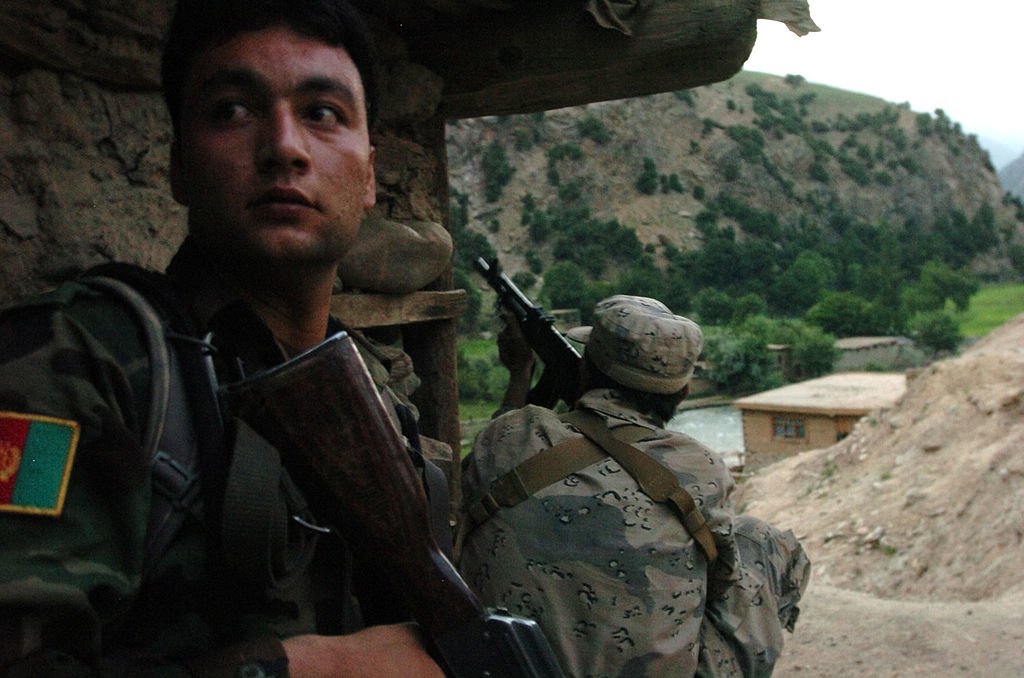
A member of the Afghan national army calls for help as a member of the Afghan border police fires at anti-Afghanistan forces in the mountains surrounding Barge Matal in Afghanistan’s eastern Nuristan province. US Army photo by Sgt. Matthew C. Moeller/released.
As the US drawdown in Afghanistan continues, a former CIA chief in the region thinks that the collapse that many expected after US forces leave may already be underway. Taliban fighters seized two provinces that border Kabul this week, inflicting heavy casualties on Afghan government forces. While escalating violence is in line with the traditional spring “Afghan Fighting Season,” the rapid advancement of the Taliban may be a preview of the collapse of Afghan Security Forces.
Milton Bearden, former CIA Chief of Station in Pakistan, told Coffee or Die Magazine he thinks the collapse has begun.
“It’s always hard to write a sentence with the word ‘Afghanistan’ in it without having to include the word ‘disaster,'” Bearden said. “Afghanistan will always revert to domination by the dominant tribe. This time it will eventually be the Pashtun Taliban.”
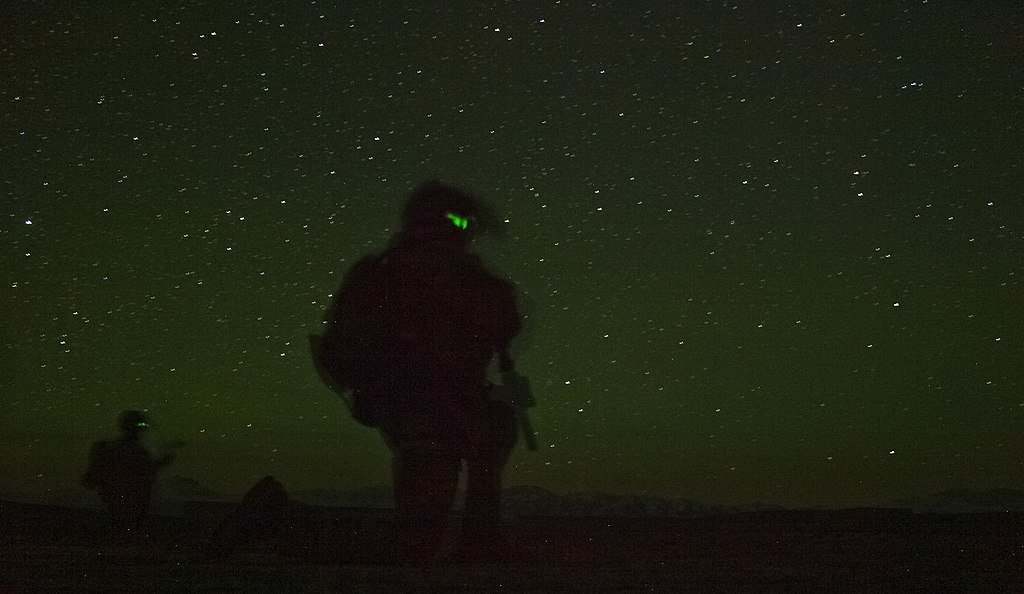
According to The New York Times, through May 20, Afghan Security Forces have seen at least 287 members killed in action this month, with at least 40 this week. By comparison, ASF suffered 301 dead in April and 259 in March. The spike in April, followed by what appears to be a further escalation in May, follows President Joe Biden’s decision to delay the withdrawal of American military personnel until September 2021.
The Taliban blame Biden’s timeline for the current fighting, saying it violates the Trump administration’s promise in the Doha agreement from early 2020, which set a US withdrawal date of May 1, 2021. Citing a “violation in principle” of that agreement, the Taliban began what is turning into a sustained offensive at the end of April, shortly after Biden announced the extended US troop presence.
“We are in a no-win situation. We haven’t been taking casualties for the last year, unlike the Afghan security forces, because the Taliban believe we have made a deal to leave. But if we extend beyond September 1, all bets are off,” Bearden said.
Over the nearly two decades of US involvement, springtime has usually meant an uptick in Taliban attacks and activity. Barnett S. Koven, a counterterrorism researcher at the University of Maryland, has looked into the historical ebbs and flows of seasonal violence in Afghanistan. Koven wrote that a combination of improved weather, money from the poppy harvest, and manpower freed up from the end of poppy-growing season combines to fill Taliban ranks with weapons and fighters each spring.
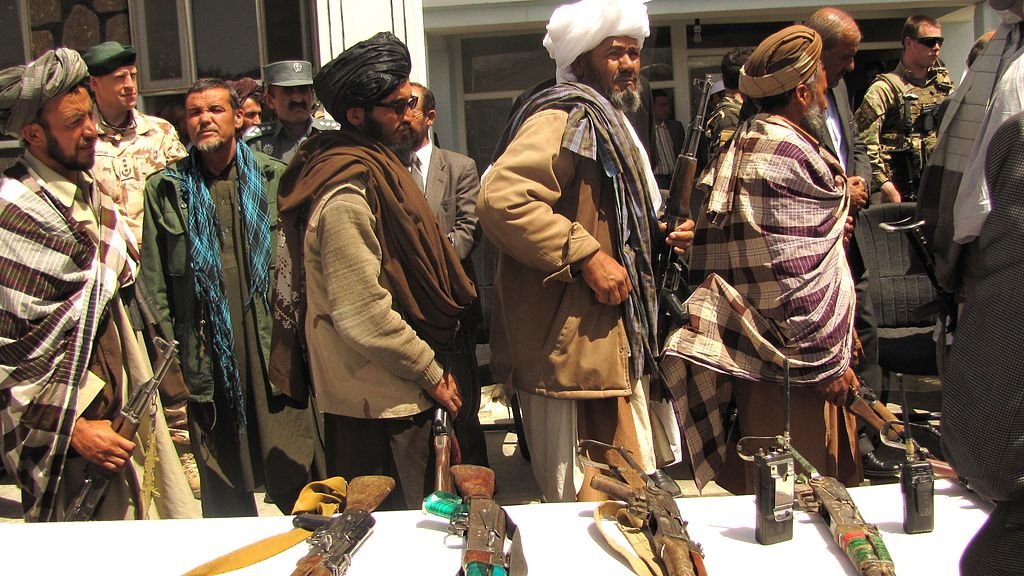
However, while most of the Taliban’s annual offensives could be explained as a “suns out, guns out” inevitability, this season appears to be more decisive with the US withdrawal underway.
That intensity was predictable, said Joshua Huminski, director of the Mike Rodgers Center for Intelligence and Global Affairs.
“The deteriorating security situation in Afghanistan is, sadly, unsurprising and forecast by nearly every analyst and organization watching the country,” Huminski told Coffee or Die Magazine.
The loss of two major district centers just outside of Kabul this week comes amid reports from TOLO News that heavy fighting has engulfed at least 18 of the country’s 34 provinces in recent days.
“The Afghan National Security Forces are fundamentally ill-equipped to stand on their own, especially without the support of American air assets and intelligence,” Huminski said.
However, to some of those who have served there, stopping the withdrawal and continuing to fight the Taliban on behalf of the Afghan government is something that is no longer worth doing after nearly 20 years of repeated attempts.
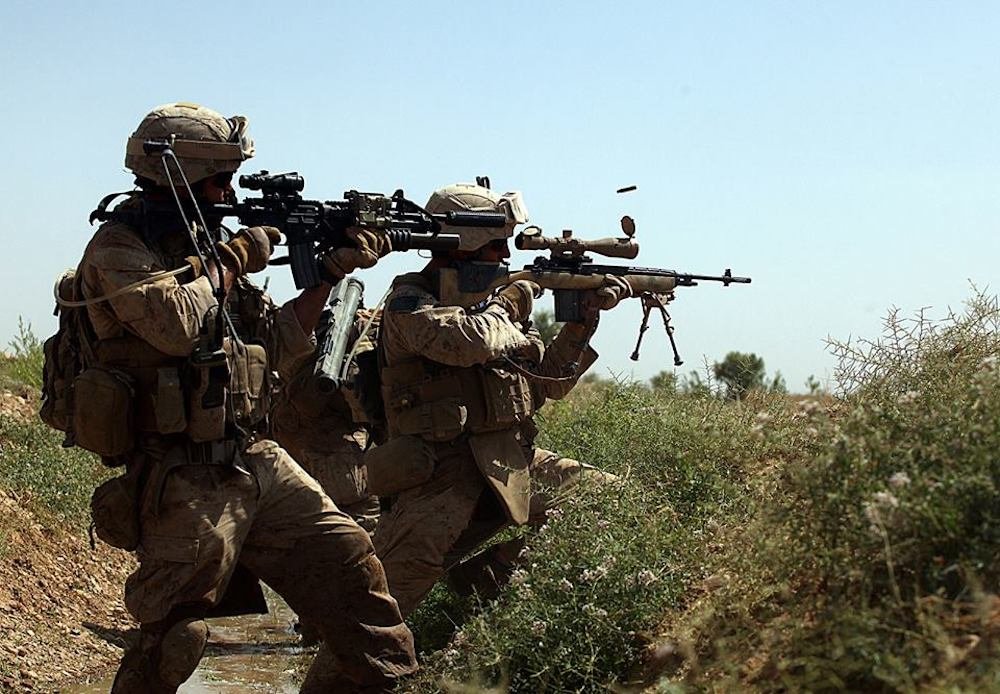
“We’ve spent decades and trillions of dollars, probably, training the Afghan army. If they can’t hold it by themselves, then no amount of money or servicemembers’ lives from the United States will put it on the right track,” said a Marine veteran of Afghanistan and policy staffer for a senior member of the US Senate. The individual talked to Coffee or Die Magazine on the condition of anonymity due to the sensitive nature of their current position.
Bearden, who spent 30 years at the CIA and whose tenure in the region extends back to the Soviet occupation, agreed with the former Marine.
“There’s no happy ending to an occupation of Afghanistan by foreign forces,” Bearden said. “This includes the forces of the young Macedonian in 327BC, the Moguls about 1900 years later, the British during their great adventures in the 19th century, the Russians in the 20th century, and now us.”
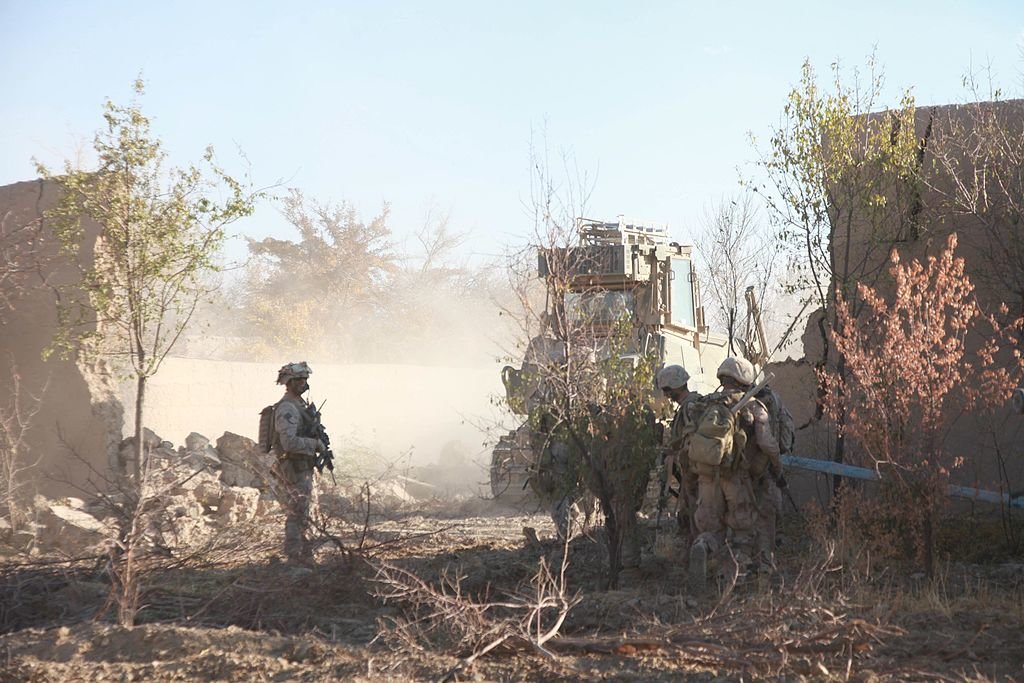
In Wardak and Laghman provinces, the ascendancy of the Taliban is being felt by local leaders who claim that the government in Kabul isn’t responding to their calls for help. Mahdi Rasikh, a member of parliament who represents Warkad province, told TOLO News that “No action was taken by the central government to help the district” over the course of three days of heavy fighting, which eventually resulted in the capture of the provincial governor’s house by the Taliban.
“The situation in Jalriz is very bad, and only three villages remain, and they are also under siege by the Taliban, and the Taliban is searching the people’s houses,” Toryalai, a resident of Jalriz, told TOLO News.
In Laghman province to the east of Kabul, the security situation has continued to deteriorate. According to TOLO News, the early morning hours of May 20 saw a major Taliban attack, which according to members of the provincial council, resulted in nearly 30 security forces members killed or wounded and several security outposts captured.
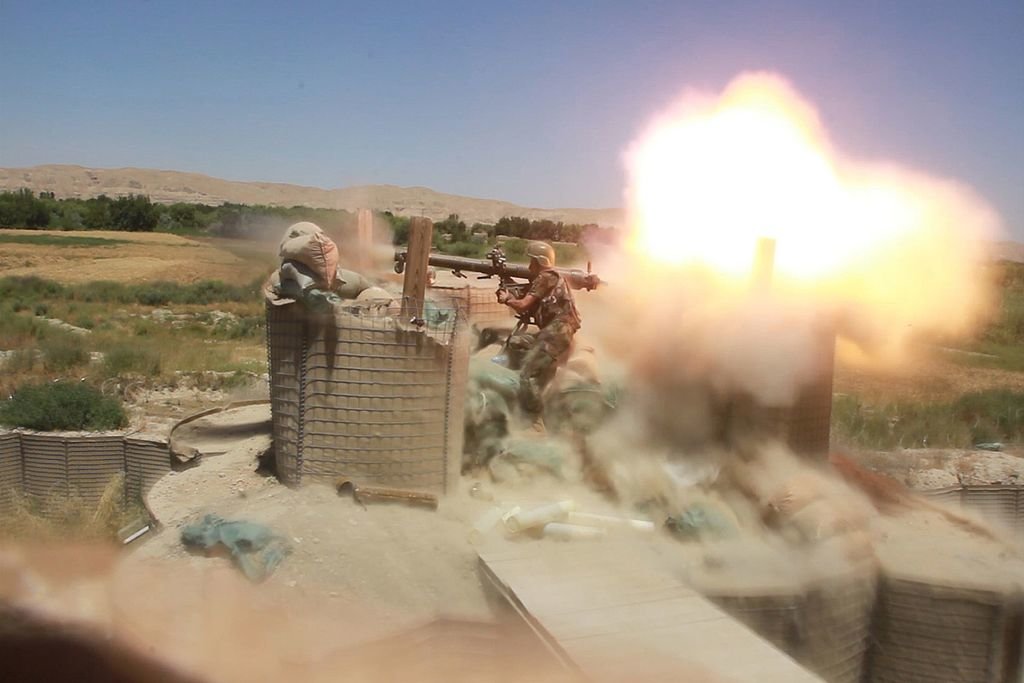
“The Taliban are not interested in any form of a peaceful settlement or power-sharing with the government in Kabul — regardless of what they may say publicly — and the latest capture of the district centers merely reinforces that reality,” Huminski told Coffee or Die.
According to Bearden, the Taliban believe that the US has made a deal with them to leave the country and, historically, no foreign-backed government has survived in the country once its benefactor has left. According to Bearden, staying past the September deadline established by Biden could pose catastrophic.
“Our casualties will pick up then, including green on blue, and the Biden administration will be faced with either bugging out under pressure (helicopters on the rooftop again) or going with a new ‘surge.’ Then we’re back where we were at the beginning,” Bearden told Coffee or Die.
Read Next: Violence Flares in Afghanistan Following Eid Cease-Fire

James Webb served as a US Marine infantryman from 2005 to 2010, completing a combat tour in Iraq. He’s worked as a freelance writer and photojournalist covering US troops in Afghanistan, and Webb spent more than two years in the US Senate as a military legislative assistant and as the personal representative of a member on the US Senate Foreign Relations Committee.
BRCC and Bad Moon Print Press team up for an exclusive, limited-edition T-shirt design!
BRCC partners with Team Room Design for an exclusive T-shirt release!
Thirty Seconds Out has partnered with BRCC for an exclusive shirt design invoking the God of Winter.
Lucas O'Hara of Grizzly Forge has teamed up with BRCC for a badass, exclusive Shirt Club T-shirt design featuring his most popular knife and tiomahawk.
Coffee or Die sits down with one of the graphic designers behind Black Rifle Coffee's signature look and vibe.
Biden will award the Medal of Honor to a Vietnam War Army helicopter pilot who risked his life to save a reconnaissance team from almost certain death.
Ever wonder how much Jack Mandaville would f*ck sh*t up if he went back in time? The American Revolution didn't even see him coming.
A nearly 200-year-old West Point time capsule that at first appeared to yield little more than dust contains hidden treasure, the US Military Academy said.












